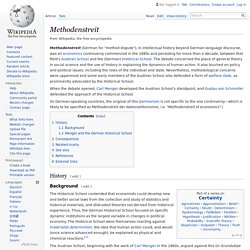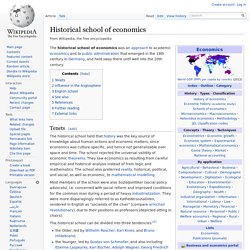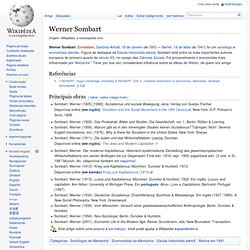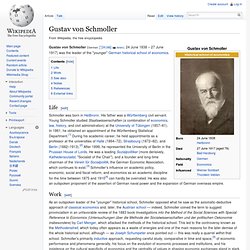

Methodenstreit. Methodenstreit (German for "method dispute"), in intellectual history beyond German-language discourse, was an economics controversy commenced in the 1880s and persisting for more than a decade, between that field's Austrian School and the (German) Historical School.

The debate concerned the place of general theory in social science and the use of history in explaining the dynamics of human action. It also touched on policy and political issues, including the roles of the individual and state. Nevertheless, methodological concerns were uppermost and some early members of the Austrian School also defended a form of welfare state, as prominently advocated by the Historical School. When the debate opened, Carl Menger developed the Austrian School's standpoint, and Gustav von Schmoller defended the approach of the Historical School.
History[edit] Background[edit] Historical school of economics. The historical school of economics was an approach to academic economics and to public administration that emerged in the 19th century in Germany, and held sway there until well into the 20th century.

Tenets[edit] The historical school held that history was the key source of knowledge about human actions and economic matters, since economics was culture-specific, and hence not generalizable over space and time. The school rejected the universal validity of economic theorems. They saw economics as resulting from careful empirical and historical analysis instead of from logic and mathematics.
The school also preferred reality, historical, political, and social, as well as economic, to mathematical modelling. Most members of the school were also Sozialpolitiker (social policy advocats), i.e. concerned with social reform and improved conditions for the common man during a period of heavy industrialization. The historical school can be divided into three tendencies:[1] Werner Sombart. Werner Sombart. Origem: Wikipédia, a enciclopédia livre.

Werner Sombart (Ermsleben, Saxônia-Anhalt, 19 de Janeiro de 1863 — Berlim, 18 de Maio de 1941) foi um sociólogo e economista alemão. Figura de destaque da Escola historicista alemã, Sombart está entre os mais importantes autores europeus do primeiro quarto do século XX, no campo das Ciências Sociais. Foi provavelmente o economista mais influenciado por Nietzsche.1 Teve, por sua vez, considerável influência sobre as idéias de Weber, de quem era amigo. Referências Principais obras[editar | editar código-fonte] Sombart, Werner (1905) [1896]: Sozialismus und soziale Bewegung. Disponível online (em inglês): Socialism and the Social Movement in the 19th Century, New York: G.P. Sombart, Werner (1906): Das Proletariat. Disponível online (em inglês): The Jews and Modern Capitalism. Sombart, Werner: Der moderne Kapitalismus. Disponível online (em alemão) Krieg und Kapitalismus (1913) Sombart, Werner (1913): Luxus und Kapitalismus.
Max Weber. Karl Emil Maximilian "Max" Weber (German: [ˈmaks ˈveːbɐ]; 21 April 1864 – 14 June 1920) was a German sociologist, philosopher, and political economist whose ideas influenced social theory, social research, and the entire discipline of sociology.[3] Weber is often cited, with Émile Durkheim and Karl Marx, as among the three founding creators of sociology.[4][5][6] Weber also made a variety of other contributions in economic history, as well as economic theory and methodology.

Weber's analysis of modernity and rationalisation significantly influenced the critical theory associated with the Frankfurt School. After the First World War, Max Weber was among the founders of the liberal German Democratic Party. He also ran unsuccessfully for a seat in parliament and served as advisor to the committee that drafted the ill-fated democratic Weimar Constitution of 1919. After contracting the Spanish flu, he died of pneumonia in 1920, aged 56.[4] Biography[edit] Early life and family background[edit] Gustav von Schmoller. Gustav von Schmoller (German: [ˈʃmɔlɐ] ( ); 24 June 1838 – 27 June 1917) was the leader of the "younger" German historical school of economics.

Life[edit] Schmoller was born in Heilbronn. His father was a Württemberg civil servant. Young Schmoller studied Staatswissenschaften (a combination of economics, law, history, and civil administration) at the University of Tübingen (1857–61).